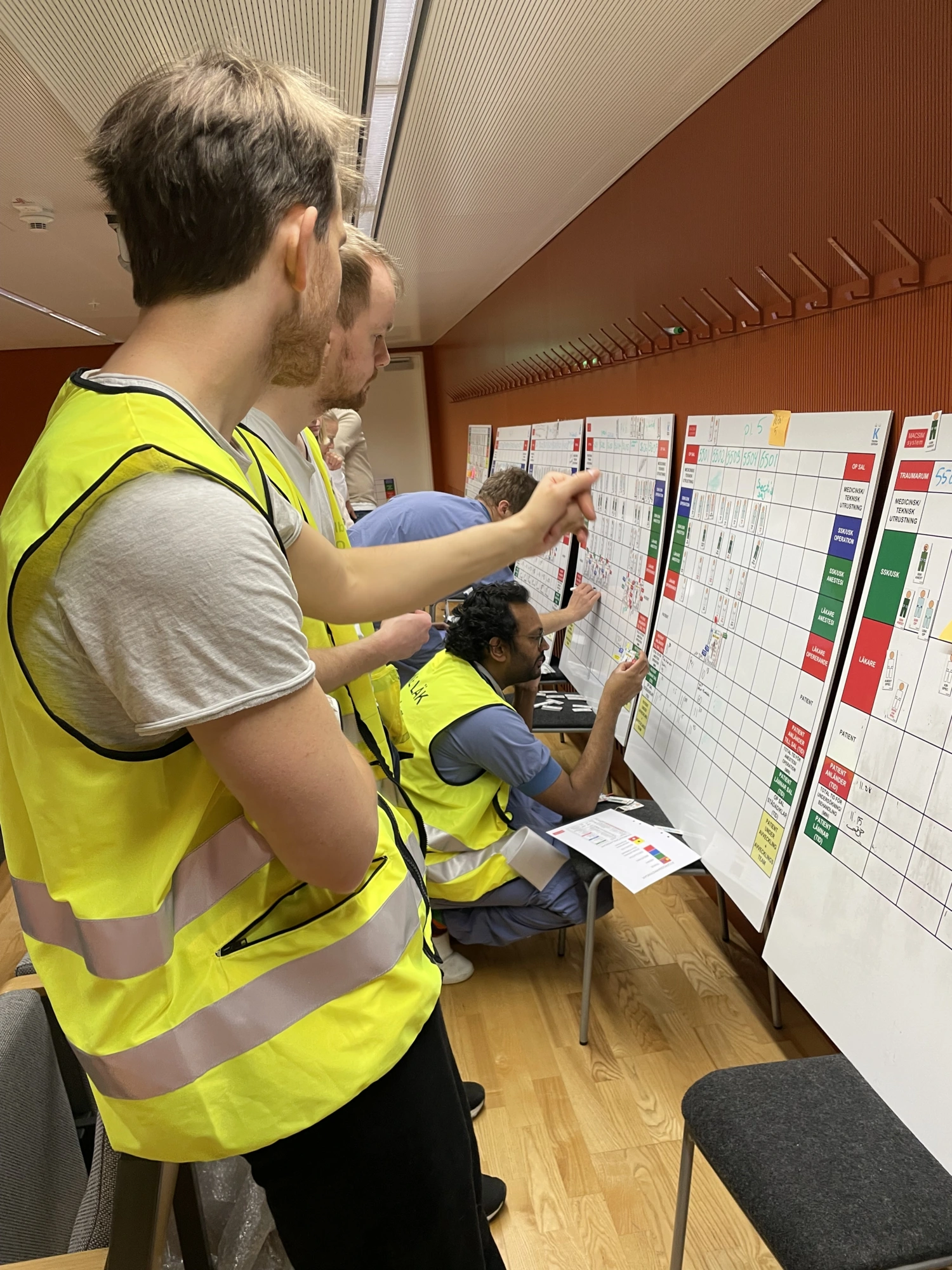The Human Rights Council this morning adopted the outcomes of the Universal Periodic Review of Denmark, Somalia, Palau and Solomon Islands.
Speaking on the Universal Periodic Review outcome of Denmark were Morocco, Namibia, Nepal, Russian Federation, South Africa, Sri Lanka, Tunisia, Venezuela, Viet Nam, Algeria, China, Belgium and Libya.
The following civil society organizations also took the floor on the Universal Periodic Review outcome of Denmark: International Humanist and Ethical Union, Fundacion para la Mejora de la Vida, la Cultura y la Sociedad, Action Canada for Population and Development, Meezaan Center for Human Rights, Amnesty International, International Organization for the Elimination of All Forms of Racial Discrimination, and Rencontre Africaine pour la defense des droits de l’homme.
Speaking on the Universal Periodic Review outcome of Somalia were Djibouti, Egypt, Gambia, India, Indonesia, Iraq, Kuwait, Lesotho, Libya, Malawi, Mauritania and Cuba.
The following civil society organizations also took the floor on the Universal Periodic Review outcome of Somalia: British Humanist Association, Alliance Defending Freedom, Minority Rights Group, Amnesty International, Action Canada for Population and Development, Rencontre Africaine pour la defense des droits de l’homme, Maat for Peace, Development and Human Rights Association, Partners For Transparency, and Center for Inquiry.
Speaking on the Universal Periodic Review outcome of Palau were United Nations Women, United Nations Children’s Fund, Vanuatu, Venezuela, Viet Nam, Cuba, Fiji, India, Indonesia, Maldives, Morocco, Nepal and New Zealand.
The following civil society organizations also took the floor on the Universal Periodic Review outcome of Palau: World Jewish Congress and Center for Global Nonkilling.
Speaking on the Universal Periodic Review outcome of Solomon Islands were China, Cuba, Fiji, Gambia, India, Indonesia, Maldives, Morocco, Nepal, New Zealand, Sierra Leone and Tunisia.
The following civil society organizations also took the floor on the Universal Periodic Review outcome of Solomon Islands: Swedish Association for Sexuality Education, Stitching CHOICE for Youth and Sexuality, International Planned Parenthood Federation, joint statement from Dominicans for Justice and Peace – Order of Preachers and Co-Sponsor: Franciscans International, joint statement from Istituto Internazionale Maria Ausiliatrice delle Salesiane di Don Bosco Co-sponsor: International Volunteerism Organization for Women, Education and Development, and Center for Global Nonkilling.
The webcast of the Human Rights Council meetings can be found here. All meeting summaries can be found here. Documents and reports related to the Human Rights Council’s forty-eighth regular session can be found here.
The Council will resume its meeting at 12:30 p.m. to consider the outcomes of the Universal Periodic Review of Seychelles, Latvia, Singapore and Sierra Leone.
Consideration of Outcome of Universal Periodic Review of Denmark
Presentation by Denmark
LARS VOLCK MADSEN, Deputy Permanent Representative of Denmark to the United Nations Office at Geneva, said that human rights were a fundamental pillar in Danish society. The Danish Government was firm in respecting all its human rights obligations. However, Denmark could still improve, and it would always seek to do better. Irregular migration, refugees and displacement remained persistent challenges that would only increase in the future. Denmark pursued a fair and realistic immigration policy without compromising its obligation to help people who need protection. Denmark had received 288 recommendations and had accepted 202 of them.
Danish Institute of Human Rights said the Universal Periodic Review could be a driver for change and the Danish Institute would continue to work with the Danish Government to make a difference in civil society.
Discussion
Speakers welcomed Denmark’s input and transparency and supported the adoption of Denmark’s outcome. Some speakers welcomed that Denmark had accepted recommendations on the rights of minority groups and reducing violence against women. They welcomed the legislative changes adopted by Denmark, including the amendment of the legal definition of rape, in order to improve the protection of women from violence, particularly in close relationships. Some speakers said that more needed to be done to combat racism, although they welcomed Denmark’s stance on fighting hate crime and racism. In an increasingly diverse country, there was a need to broaden the concept of ‘Danishness’ to be inclusive of all religions and beliefs. One speaker was disappointed that Denmark did not accept recommendations regarding immigrant detention. Another speaker was concerned about the uncontrolled use of the espionage service of Denmark to monitor citizens and was also concerned about the increase in the number of people being placed in solitary confinement for more than 14 days.
The Vice-President of the Council said that out of 288 recommendations received, 202 recommendations enjoyed the support of Denmark and 86 recommendations were noted.
Concluding Remarks
LARS VOLCK MADSEN, Deputy Permanent Representative of Denmark to the United Nations Office at Geneva, said Denmark was always ready to engage in further dialogue on human rights issues. Denmark had received all the recommendations as important inputs to its continuous work on improving the human rights standards in Denmark. Denmark respected the rule of law and its high human rights standards were a cornerstone of Danish society.
The Council then adopted the outcome of the Universal Periodic Review of Denmark.
Consideration of Outcome of Universal Periodic Review of Somalia
Presentation by Somalia
EBYAN MAHAMED SALAH, Permanent Representative of Somalia to the United Nations Office at Geneva, said Somalia was determined to work tirelessly on the implementation of the 246 recommendations that it had supported. All stakeholders in Somalia would have an important role to play in the implementation process and the Government, led by the Ministry of Women and Human Rights Development, would ensure that the implementation was adequately coordinated.
Somalia was working to address major national development challenges, including in the human rights sector. The ground reality attested to promising developments and achievements in Somalia.
Discussion
Speakers positively noted Somalia’s efforts and congratulated Somalia on accepting many recommendations. The Council was encouraged to adopt Somalia’s Universal Periodic Review outcome. One speaker welcomed Somalia’s work on protecting those with disabilities and vulnerabilities. Somalia was congratulated for its recent ratification of the Convention on the Rights of Persons with Disabilities, the development of a bill to criminalise all types of female genital mutilation, and the creation of a national action plan on ending sexual violence in conflict. Speakers urged the Somali Government to use the opportunity presented by the upcoming redrafting of its Penal Code and the Criminal Procedure Code to guarantee the right to and strengthen protections for freedom of religion or belief of all citizens.
The Vice-President of the Council said that out of 273 recommendations received, 246 enjoyed the support of Somalia, and 27 were noted.
Concluding Remarks
ABDULKADIR MOHAMED HUSSEIN, First Secretary, Permanent Mission of Somalia to the United Nations Office at Geneva, thanked everyone for their contributions and friends of Somalia for their support of the country’s human rights work.
The Council then adopted the outcome of the Universal Periodic Review of Somalia.
Consideration of Outcome of Universal Periodic Review of Palau
Discussion
Speakers commended the Government of Palau’s endorsement of the Palau National Gender Mainstreaming Policy (2018-2023) and the criminalisation of marital rape under the Palau National Code by revising the Palau Family Protection Act. The Government was encouraged to strengthen inter-agency coordination, establish shelters and expand support services for survivors of domestic violence and child abuse. Speakers welcomed Palau’s revision of the Palau National Code to increase the age of marriage from 16 to 18, in order to ensure greater legal protection for children from abuse, violence, exploitation and risky adolescent pregnancies. Speakers also noted Palau’s commitment to human rights and its work to reduce violence against women, youth and children. Palau’s efforts to mitigate climate change were welcomed.
The Vice-President of the Council said that out of 142 recommendations received, 67 enjoyed the support of Palau, and 75 were noted.
Concluding Remarks
JEFFREY ANTOL, Director of the Bureau of Foreign Affairs and Trade, Ministry of State of Palau, said Palau had received a total of 142 recommendations, of which 67 were noted and 75 were accepted. Since the Universal Periodic Review, Palau had taken the initiative to assign relevant agencies to deal with the said – accepted and noted recommendations. Palau was committed to ensuring that fundamental human rights were accorded to every person living in Palau based on the Universal Declaration of Human Rights. The Universal Periodic Review process was a uniting agent for all the stakeholders in Palau as they collaborated closely and shared experiences – and most importantly the challenges faced with regards to the promotion, protection and realisation of human rights practices and issues in Palau.
The Council then adopted the outcome of the Universal Periodic Review of Palau.
Consideration of Outcome of Universal Periodic Review of Solomon Islands
Presentation by Solomon Islands
CORNELIUS WALEGEREA, Deputy Secretary, Ministry of Foreign Affairs and External Trade of Solomon Islands, said Solomon Islands had received 160 recommendations. It had accepted 106 recommendations and noted the rest.
Solomon Islands welcomed the recommendations focused on addressing climate change and sea level rise. Climate change was an existential threat to the existence of Solomon Islanders. Solomon Islands accepted all recommendations that addressed the strengthening of policy and coverage surrounding universal healthcare as well as all recommendations covering access to basic education for both boys and girls, most especially in rural areas.
Discussion
Speakers noted the efforts of Solomon Islands to improve the quality of life for people living in Solomon Islands, and to improve the rights of women, as well as their economic status. They welcomed Solomon Islands’ priority to ratify the Convention on the Rights of Persons with Disabilities. Some speakers welcomed
the initiation of the healthy village project to address preventable diseases through the improvement of water, sanitation and hygiene. They welcomed the National Development Strategy 2016-2035 aimed at improving the quality of life of all Solomon Islanders. Some speakers encouraged Solomon Islands to ratify the
International Convention on the Protection of Migrant Workers and Members of Their Families.
The Vice-President of the Council said that out of 160 recommendations received, 106 enjoyed the support of Solomon Islands, and 54 were noted.
Concluding Remarks
CORNELIUS WALEGEREA, Deputy Secretary, Ministry of Foreign Affairs and External Trade of Solomon Islands, thanked all stakeholders for their views and comments.
On the subject of the rights of women and girls, Solomon Islands accepted the Recommendations to take further steps to increase the participation of women in public service and enhance measures for women’s economic empowerment, as well as their representation in leadership positions. Solomon Islands also supported all recommendations with regards to the rights of children and the Government was in the process of reviewing the Islanders Marriage Act with the view to increase the legal marriage age from 15 to 18 for girls. Solomon Islands also supported the recommendation to establish a national human rights institution in line with the Paris Principles.
The Council then adopted the outcome of the Universal Periodic Review of Solomon Islands.





